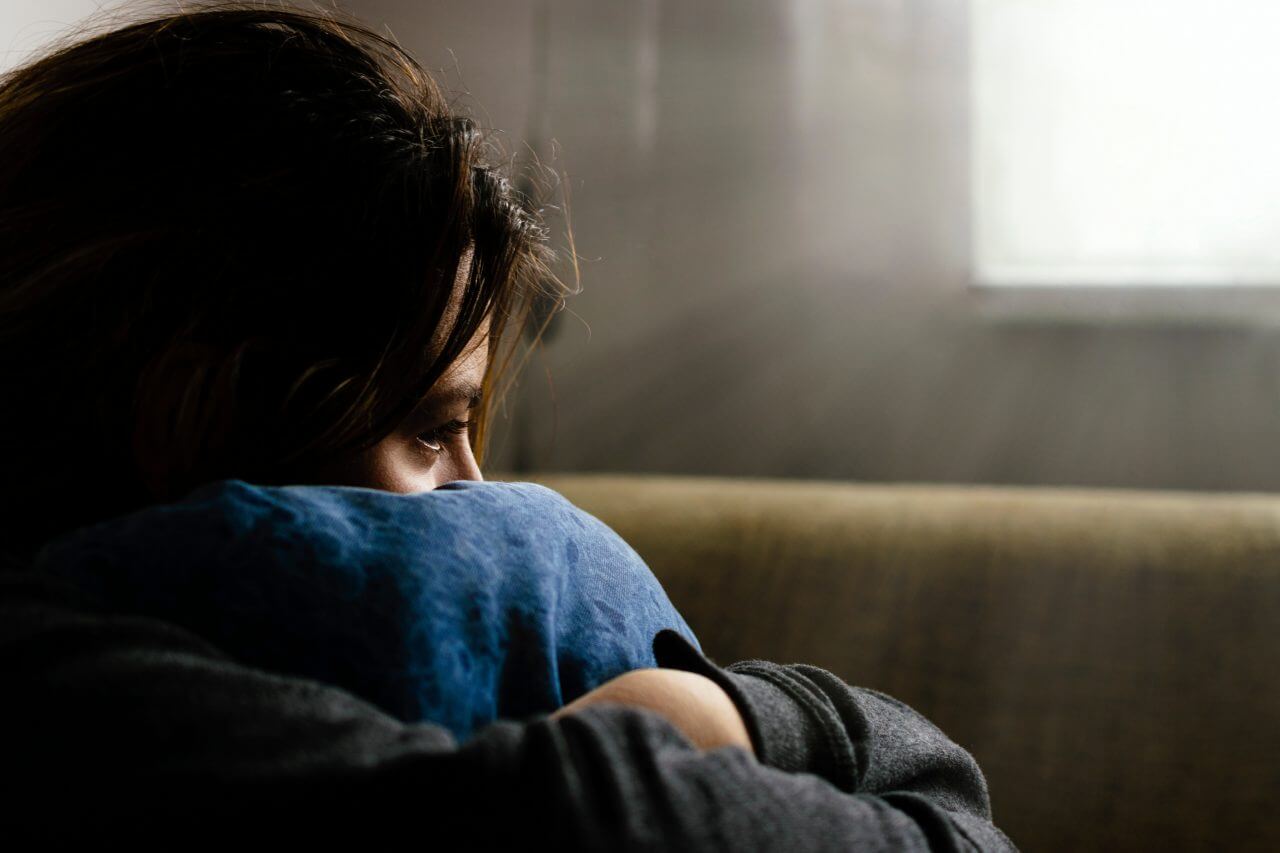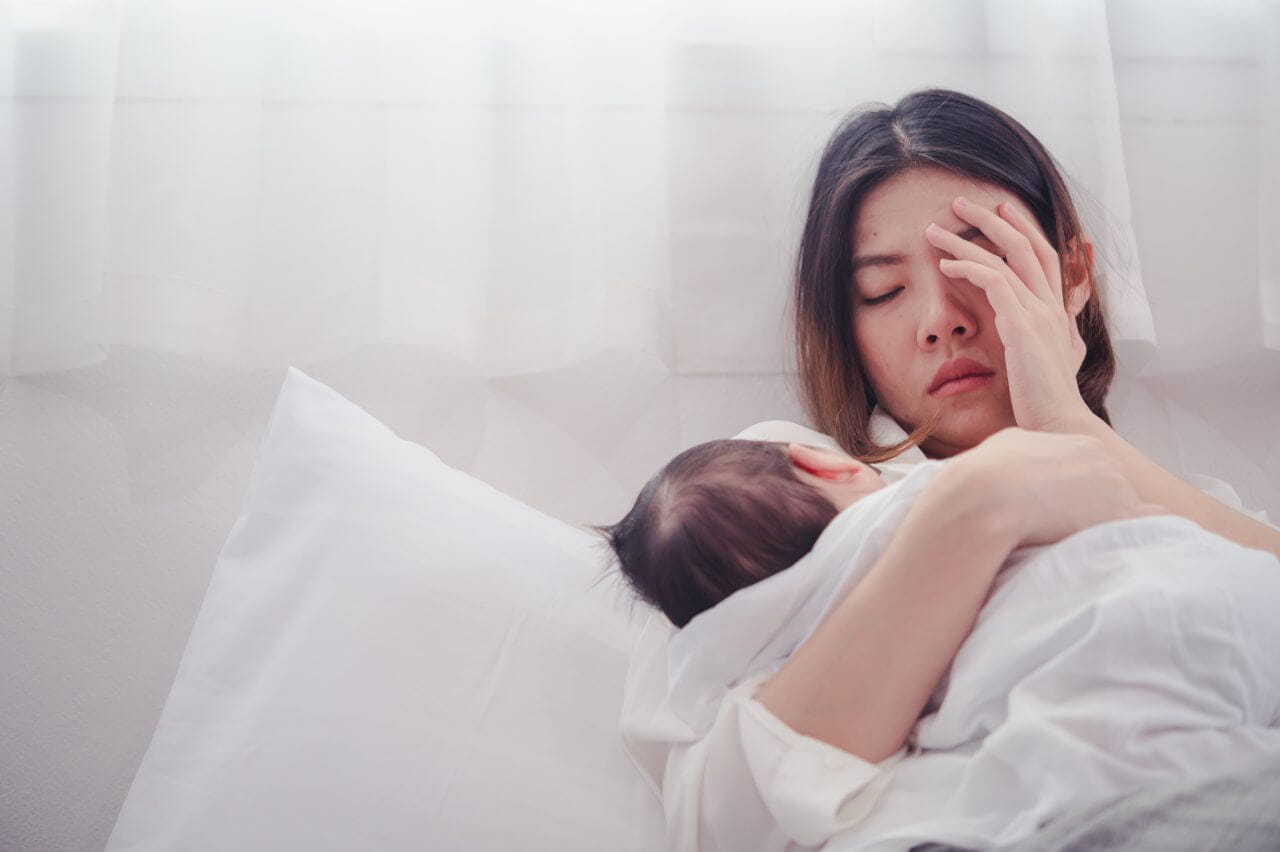What Does it Feel Like to Have Postpartum Depression?

It doesn’t matter how much you love your new baby or how long you’ve looked forward to being a mother, having a baby is stressful. Considering the drastic changes in your lifestyle, sleep deprivation, new responsibilities, and lack of time for yourself, it’s no wonder that many new moms feel like they’re on an emotional rollercoaster. Mild depression and mood swings are so common in new mothers that they have their own name: the baby blues.
The baby blues are both common and perfectly normal, but if they don’t go away after a few weeks or get worse, you may be suffering from postpartum depression.
Your Sleeping Patterns Change
For all new mothers, this goes without saying. But if you’re having difficulty resting when your baby’s asleep, or you’re sleeping all the time, that’s a sign of something other than a new sleep pattern.
You Struggle to Make Decisions
The kinds of decisions we’re talking about aren’t minor ones, like choosing which restaurant you want to carry out from, but rather not being able to decide if it’s worth getting out of bed in the morning, taking a shower, or changing your baby’s diaper. If you’re experiencing situations like this, seek out professional help immediately.
You Lose Interest
Are you laughing at your favorite sitcom? Enjoying your favorite foods? Are you still participating in activities that you enjoy? Do you enjoy spending time with your baby? If you’re losing interest in things that normally bring you joy, talk with your doctor about these changes in your mood and habits.
You Develop Intense Feelings of Sadness or Guilt
Feeling upset or down once in a while is completely normal. But if you’re experiencing frequent crying spells, or you often feel unhappy about being a parent, or are frequently “down on yourself” as a mom, these may be the first signs of postpartum depression.
You Question Your Ability as a Mother
While worrying about being a good mom is normal, continually questioning your abilities isn’t. If your doubts continue well into the first year of having your baby, it could be a sign of postpartum depression.
You Have Thoughts of Harming Yourself, Your Baby, or Your Partner
Thoughts of suicide, or of harming yourself, your partner, or your baby are signs of advanced postpartum depression and even postpartum psychosis, a rare and serious condition that happens in postpartum depression. If you’re having suicidal thoughts, you’re in crisis and need to call your doctor or the National Suicide Prevention Lifeline at 1-800-273-8255 immediately to get help.
Postpartum Depression or Baby Blues?
If you find yourself crying occasionally, or you’re tired or restless, those are signs of the baby blues, which is very common. When your symptoms last longer than a couple of weeks and worsen to the point where they affect your quality of life, you might be experiencing postpartum depression. Making this distinction between the two will help you seek the appropriate treatment as soon as possible.
What to Do if You Believe You’re Experiencing Postpartum Depression
If you’re experiencing several of the postpartum depression signs described above, here are some tips for what you should do next:
- Take note of signs
- Record dates and times
- Watch for patterns and compulsions
- If it’s your partner, assess her awareness of her own behaviors
- Take a postpartum depression screening test or quiz
- Make an appointment with your doctor
- Ask about treatment options, including medication and therapy
- Seek help from support groups or online forums
Never miss a beat! Subscribe to our email newsletter to stay up-to-date on the most important health and wellness information, delivered right to your inbox.
Learn More About Postpartum Depression Treatment with Baptist Health
If you believe that you or a loved one has postpartum depression, we’re here to help and support recovery. Find your local Baptist Health provider to schedule an appointment today.
Next Steps and Useful Resources:
How Can You Help Someone with Depression?
How Does Depression Affect Sleep?
Baby Blues or PPD (Postpartum Depression)?



